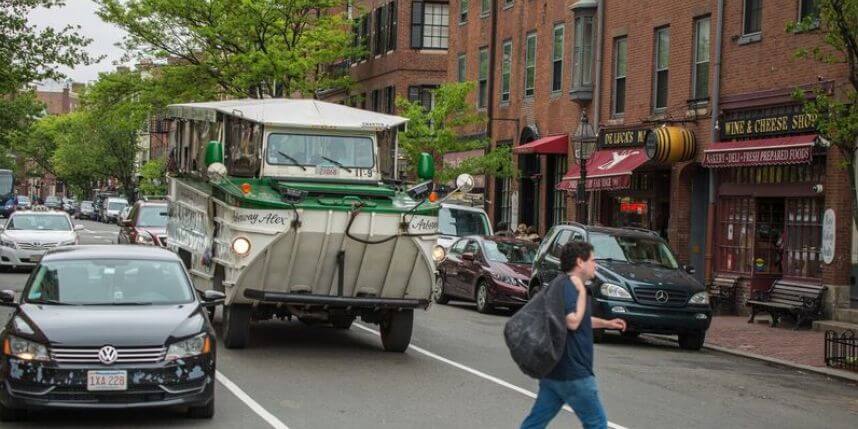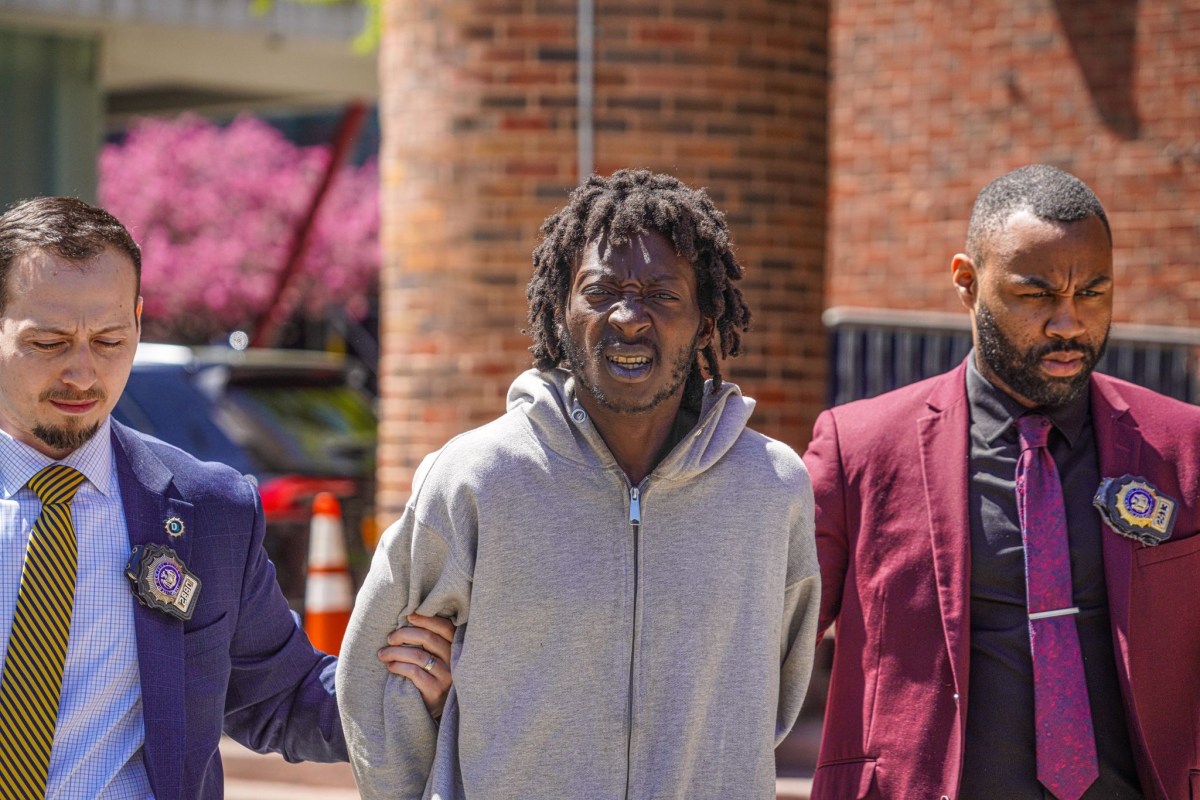Less than two months after a deadly crash near Boston Common, lawmakers are proposing new rules for tourist-schlepping vehicles like the city’s fleet of duck boats.
The proposal, announced at the State House on Wednesday morning, would require that duck boats be fitted with cameras and sensors to monitor blind spots, and that drivers not be allowed to narrate tours of the city while operating the vehicles. On all land-and-sea vehicles, one person would need to be designated the driver, while a second staff member would lead the sightseeing tour. In the past, duck boat drivers have done both at the same time. “These are the things that we view as basically common-sense measures that we should move forward now without the need for further delay or investigation,” Sen. Brownsberger, the bill’s co-sponsor, said Wednesday. Brownsberger and Sen. Joe Boncore, as well as Rep. Jay Livingstone, were joined on Beacon Hill by the parents of Allison Warmuth, the 28-year-old who was killed April 30 in a collision with a duck boat while riding on a motorized scooter. She had reportedly been stopped in front of the duck boat in its blind spot, and was overtaken at a red light when it turned green. An investigation into the crash is ongoing. “At first we were just shocked and we weren’t really thinking about much beyond our own grief,” Ivan Warmuth, Allisons’s father, said in a news conference. “As we became more aware we started to get really concerned that this was allowed to go on and nothing was being done to prevent this from happening again.” RELATED: After deadly crash, a new push to make duck boats safer The crafts, bulky World War II-era amphibious landing vehicles, have given guided tours in Boston for two decades and have reached iconic status in the city. In addition to carrying tourists past landmarks while drivers ham it up with jokes and trivia, the boats are also fixtures of events like post-Super Bowl and World Series victory parades.
What’s a parade in Boston without a Duck Boat? #wickedproud #Pride2016 pic.twitter.com/OVZeB73yhw
— Boston Pride (@bostonpride) June 11, 2016
Bicyclists, meanwhile, have complained that the vehicles’ odd design and spacious blind spots make it dangerous to share the road with them. The Boston Cyclists Union told Metro in May that it was working with lawmakers to impose new rules on duck boats, and had even called for them to be “taken off the road until they’re made to be safe to coexist with vulnerable road users,” according to Becca Wolfson, the group’s executive director. In an interview on Wednesday, Wolfson called the legislation “a great example of acknowledging there is a threat to safety on our streets and an engineered solution that can be taken to increase safety.” Two main companies operate amphibious tours in Boston: Boston Duck Tours, which owned the vehicle involved in the April 30 crash, and Boston Super Tours-operated Super Duck Tours. Of the two, only Super Duck Tours vehicles have both a tour guide and a driver on board during trips, according to a review in the Globe from May. “We have already installed a new camera on each duck, which will complement the eight existing mirrors to address any blind spots,” Boston Duck Tours said in a statement, the Boston Globe reported. “We also plan to add sensory equipment to the front and back of the vehicle in the near term. We await the conclusion of the City of Boston’s investigation and will collaborate with them on any additional safety procedures that they recommend.” The bill does not impose new restrictions about background checks for drivers — the operator of the vehicle involved in the April 30 crash, it was later revealed, had a lengthy record of driving violations. The legislation would not just cover duck boats. Other companies operating tours, among them those running double-decker sightseeing buses, would also need to comply with the part outlawing driving while also providing commentary to passengers. Read the full text of the bill here.
Brownsberger urged his colleagues to take action quickly, saying he hoped the legislation could pass as quickly as the so-called “upskirting” law, which was fast-trackedfollowing a high-profile case involving a passenger on the Green Line.
Brownsberger says he hopes to see sightseeing safety bill move through leg as quickly as upskirting law. #mapoli pic.twitter.com/d1BXP4aflv
— Antonio Caban (@Antonio_Caban) June 15, 2016



















